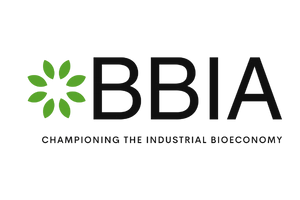The Bio-based and Biodegradable Industries Association (BBIA) is a prominent lobbying entity in the EU specializing in advocating for bio-based, biodegradable, and compostable products. The association represents manufacturers and stakeholders across sectors producing environmentally sustainable goods such as bio-lubricants, bio-based plastics, and other biodegradable materials. Its overarching mission is to influence EU policy and regulatory frameworks to support innovation, market uptake, and sustainability in bio-based industries, aligning with the broader European Green Deal and circular economy objectives.
Founded to provide a strong collective voice for bio-based industries, BBIA engages with EU institutions to shape legislation conducive to the growth of sustainable bio-based products and biodegradable alternatives. The association emphasizes the importance of recognition in policy for bio-based content, biodegradability standards, and the distinction between biodegradable and conventional plastics. BBIA also advocates for labeling schemes that inform consumers while supporting industry innovation in bio-based product development.
Key advocacy areas for BBIA include the promotion of bio-based and biodegradable plastics as part of waste reduction strategies, enhancing the regulatory environment to facilitate easier market access, and stimulating investment in bioeconomy sectors. The association works in close cooperation with policymakers to ensure that sustainability metrics, including carbon footprint assessments and life-cycle analyses, accurately reflect the environmental benefits of bio-based solutions. BBIA also collaborates with scientific and industry stakeholders to drive awareness and standards formulation at EU and national levels.
Their policy efforts focus on improving frameworks under directives such as the Packaging and Packaging Waste Directive, the Single Use Plastics Directive, and other relevant legislation influencing bio-based materials’ market dynamics. BBIA supports the development of transparent certification and sustainability criteria to differentiate truly biodegradable products from conventional or fossil-based plastics. The association’s work is crucial for smoothing the transition toward a circular economy in the EU, reducing reliance on fossil resources, supporting the bioeconomy, and contributing to climate goals.
BBIA maintains an active profile in the EU Transparency Register since its accreditation, reflecting a commitment to transparency and accountability. The association’s influence extends through coordination with complementary organizations involved in bioeconomy, biotechnology, and sustainability, amplifying their advocacy impact.


